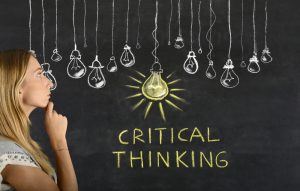0
You have 0 items in your cart

Mindfulness. Every business is adopting it, from Apple to NHs and the General Mills. Even Google includes mindfulness principles in their Search Inside Yourself classes.
So, what is mindfulness? At the most elementary level, mindfulness means awareness. It involves being profoundly conscious of your surroundings – only observing things as they are. When we are mindful, we are alert of the present and more available to respond to others. Even though its origin is associated with the Buddhist tradition, you do not have to be Buddhist to realize its benefits.

Interest in mindfulness is growing rapidly because people are looking for ways to cope with challenges, complications, and ambiguity in their lives. With mental health problems on the rise and stress topping the list of reasons for long-term absence, people are turning to mindfulness as an antidote to all the multitasking, thinking and struggling. Mindfulness practices result in improved concentration, stress reduction, effective communication and overall health improvement.

Interest in mindfulness is growing rapidly because people are looking for ways to cope with challenges, complications, and ambiguity in their lives. With mental health problems on the rise and stress topping the list of reasons for long-term absence, people are turning to mindfulness as an antidote to all the multitasking, thinking and struggling. Mindfulness practices result in improved concentration, stress reduction, effective communication and overall health improvement.

This yields self-awareness, greater empathy for self, energy management, better listening skills, strong engagement with others and adaptation to change among many other benefits. Mindfulness can improve the work environment in elegant and distinct ways making it a promising ground for positive change.
Each morning we are born again. What we do today is what matters the most.

Employees can learn to be mindful again instead of experiencing every moment under a stream of thoughts. They can be taught how to focus on the present to become alert moment by moment. This can be achieved through integrating purposeful breaks into their daily lives. Employers can also create a culture of mindfulness at the workplace by doing the following:

Encouraging employees to take periodic breaks for mindfulness activities every 2 or so hours. This may include walking or eating to relieve stress.

Integrating mindfulness principles into corporate initiatives, employee training, and stress management programs.

Setting aside a peaceful place where employees can go to meditate or take time off their hectic demands in the work environment.

Constantly encouraging employees to do one task at a time and emphasising on the positive reimbursements of mindfulness activities at the workplace through regular communication could positively impact employee awareness and morale in the long run.

Begin the day mindfully. When you arrive at work, you can do a full meditation such as a slow stretch or a formal sitting meditation. Alternatively, you can simply sit up and feel the gentle flow of your own breath or connect with the peace of the quiet morning environment. You could also practise tuning your senses to bond with the surrounding and see what effect that has on your general awareness.
 During the Course of the Day
During the Course of the DayIt can be easy to get carried away by the tough schedules at work and forget to be mindful of what you are doing. You can practise doing a mini meditation at set times or in between activities. If you are not comfortable with the rigidity of having to plan everything, just practise mindfulness whenever the thought crosses your mind.
It can sometimes be difficult to let go of work at the end of the day. You may find spending a lot of time talking touchingly about superiors or colleagues or trying to finish up on pending assignments. This has an adverse effect on energy levels and can easily be transferred to the next day. To let go successfully, try finding an activity or a hobby that enables your body to settle and allow the mindfulness to calm you down.
Surrender to what is. Let go of what was. Have faith in what will be.

For one thing, mindfulness practices tap into one of the most vital resources in any organisation — attention. If employees can learn how to harness and improve the quality of their own attention, the whole team will benefit. It is, therefore, crucial for employers to inculcate a work culture that values this resource. Here arefive ways in which mindfulness can help you improve performance at the workplace.
 Improved Focus
Improved FocusExperts have proven that mindfulness has a huge effect on the part of the brain responsible for self-regulation. Even a short period of meditation directly affects the brain shifting it in ways that have a positive impact on attention, focus, and memory. Meditation helps to increase gray matter in brain regions involved in self-referential processing, emotion regulation, and learning. This enhanced capacity for self-regulation goes a long way in helping one avoid productivity robbing activities.
Mindfulness is the kind of ability that ripples out into one’s entire system. When you leverage enhanced awareness, you are going to be a better asset to the organisation. This is because mindfulness boosts brain functions. If you are in the habit of performing it on a regular basis, you are more likely to be productive in the workplace. Mindfulness is one of the biggest foundations to building a productive and creative workforce.
 Reduced Stress
Reduced Stress Think of mindfulness as a good filter for your mind. With mindfulness, you will be straining out all types of pressure. Stress is an addiction that is most often brought about by work. Most people do not know how to deal with stress. In fact, stress is the primary cause of truancy in most organizations. With some very simple mindfulness practices — like closing your eyes and breathing in and out — you can successfully stop the adverse effects of stress on your body, brain, and overall work performance.
The same way stress is contagious and tends to shut down all parts of the brain, mindfulness does the exact opposite. It helps employees develop cognitive thinking ability thus enabling them to become more aware of the present and make better judgments. Mindfulness impacts the brain in ways that enhance the mind and allows people to be more precise and original. This has a positive influence on memory leading to heightened productivity levels in the workplace.
 Embrace Criticism
Embrace CriticismIt is not every day that we see people assent criticism with elegance. Negative feedback is one of the worst experiences one can have at work. And research studies show that poorly delivered or received criticism can cripple productivity. But with a simple habit of mindfulness, you can quickly gain control of your emotions and respond positively. By mindfully listening and taking control of your response, you can overcome any undesirable counter response.

In the ever-changing world, innovators are increasingly turning towards mindfulness and meditation to cope with the ever-demanding work environment. Employees at firms such as Google and General Mills come together at conferences to learn about the latest mindfulness practices and techniques. Mindfulness techniques are now being adopted by many companies due to its incredible impact on employees.
There are a few reasons for why mindfulness has become popular. First, unlike ten years ago, companies now have access to an enormous body of research pointing to the practical benefits of mindfulness. Secondly, there is a loosening up of social customs in which things like yoga and meditation are not as foreign as they used to be. Finally, the ever-demanding work environment has made mindfulness more essential than ever before. Here are a few examples of companies that have instilled a culture of mindfulness at the workplace.

Every year, thousands of employees take Chade Meng Tan’s Search Inside Yourself classes. Chade has been successful at convincing the techies at Google to completely embrace mindfulness practices by explaining the science behind them. This is made possible through video conference training sessions geared towards teaching mindfulness as inspired by Jon Kabat- Zinn. The enormous accomplishments of the initiative are clear – Google is now one of the highest rated employers in the world.

After a 7-week mindfulness and meditation program at General Mills, a large percentage of employees attested to higher productivity levels while senior executives reported improved decision-making processes. The reimbursements of the practice have seen the company grow at an alarming rate. The Leadership Excellence magazine ranked General Mills the top company for developing leaders in 2011.

Steve Jobs had always been on the forefront promoting meditation practices at Apple. Jobs was always passionate about mindfulness and wanted to infuse the spirit to others in the workplace. Employees at the tech company are given 30 minutes every day to meditate and do yoga onsite. It is speculated that the mental control gained from meditation has helped Apple become so successful in creating innovative products year-on-year.

Intel is a company that has consistently battled with stress. Every single employee at the company reported high levels of stress. However, inspired by Chade Tan’s initiative at Google, they decided to do something about it. Their meditation program includes yoga and mindfulness practices. Even though the techies were skeptical about the program at first, they have since embraced it and have reported improved focus and decreased levels of stress.
Yahoo is yet another tech company that has embraced meditation as a weapon against stress among its employees at the workplace. Employees at Yahoo take advantage of mindfulness practices and meditation rooms to relieve them of the tension experienced while on the job. They also interact with others who share similar interests by taking classes offered onsite to realise a more mindful environment.
The practice of Mindfulness is simply being aware of what is happening right now.
This Privacy Policy describes how SmartMinds Enterprise OÜ (“SmartMinds”, “we”, “us” or “our”) handles information about yourself that you may provide us with through your use of the Site or Service (“Personal Information”) and should be read along with our Terms of Use posted here, and all other operating rules and additional terms and conditions published on our Site.
SmartMinds is committed to keeping your information secure and managing it in accordance with our legal responsibilities under privacy and data protection laws where we operate. SmartMinds uses your Personal Information only in accordance with this Privacy Policy and Applicable Law. SmartMinds does not sell your Personal Information to third parties. Any capitalized terms not defined in this Privacy Policy are defined in the Terms of Use.
We employ the use of cookies. By using SmartMinds‘s website you consent to the use of cookies in accordance with SmartMinds’s privacy policy.
Most of the modern day interactive web sites use cookies to enable us to retrieve user details for each visit. Cookies are used in some areas of our site to enable the functionality of this area and ease of use for those people visiting. Some of our affiliate / advertising partners may also use cookies.
Unless otherwise stated, SmartMinds and/or it’s licensors own the intellectual property rights for all material on SmartMinds All intellectual property rights are reserved. You may view and/or print pages from https://smartminds.one for your own personal use subject to restrictions set in these terms and conditions.
You must not:
We will approve link requests from these organisations if we determine that: (a) the link would not reflect unfavourably on us or our accredited businesses (for example, trade associations or other organisations representing inherently suspect types of business, such as work-at-home opportunities, shall not be allowed to link); (b)the organisation does not have an unsatisfactory record with us; (c) the benefit to us from the visibility associated with the hyperlink outweighs the absence of SmartMinds; and (d) where the link is in the context of general resource information or is otherwise consistent with editorial content in a newsletter or similar product furthering the mission of the organisation.
These organisations may link to our home page, to publications or to other Web site information so long as the link: (a) is not in any way misleading; (b) does not falsely imply sponsorship, endorsement or approval of the linking party and its products or services; and (c) fits within the context of the linking party’s site.
If you are among the organizations listed in paragraph 2 above and are interested in linking to our website, you must notify us by sending an e-mail to Please include your name, your organisation name, contact information (such as a phone number and/or e-mail address) as well as the URL of your site, a list of any URLs from which you intend to link to our Web site, and a list of the URL(s) on our site to which you would like to link. Allow 2-3 weeks for a response.
Approved organizations may hyperlink to our Web site as follows:
No use of (name)’s logo or other artwork will be allowed for linking absent a trademark license agreement.
Without prior approval and express written permission, you may not create frames around our Web pages or use other techniques that alter in any way the visual presentation or appearance of our Web site.
We shall have no responsibility or liability for any content appearing on your Web site. You agree to indemnify and defend us against all claims arising out of or based upon your Website. No link(s) may appear on any page on your Web site or within any context containing content or materials that may be interpreted as libelous, obscene or criminal, or which infringes, otherwise violates, or advocates the infringement or other violation of, any third party rights.
We reserve the right at any time and in its sole discretion to request that you remove all links or any particular link to our Web site. You agree to immediately remove all links to our Web site upon such request. We also reserve the right to amend these terms and conditions and its linking policy at any time. By continuing to link to our Web site, you agree to be bound to and abide by these linking terms and conditions.
If you find any link on our Web site or any linked web site objectionable for any reason, you may contact us about this. We will consider requests to remove links but will have no obligation to do so or to respond directly to you.
Whilst we endeavour to ensure that the information on this website is correct, we do not warrant its completeness or accuracy; nor do we commit to ensuring that the website remains available or that the material on the website is kept up to date.
We have a 30-day Money Back Guarantee when purchasing Realized Mind, all we ask if that within the 30 days to complete the learning experience and if you truly feel you did not receive any value from the experience we are happy to refund your payment and close your account.
To the maximum extent permitted by applicable law, we exclude all representations, warranties and conditions relating to our website and the use of this website (including, without limitation, any warranties implied by law in respect of satisfactory quality, fitness for purpose and/or the use of reasonable care and skill). Nothing in this disclaimer will:
The limitations and exclusions of liability set out in this Section and elsewhere in this disclaimer: (a) are subject to the preceding paragraph; and (b) govern all liabilities arising under the disclaimer or in relation to the subject matter of this disclaimer, including liabilities arising in contract, in tort (including negligence) and for breach of statutory duty.
To the extent that the website and the information and services on the website are provided free of charge, we will not be liable for any loss or damage of any nature.
